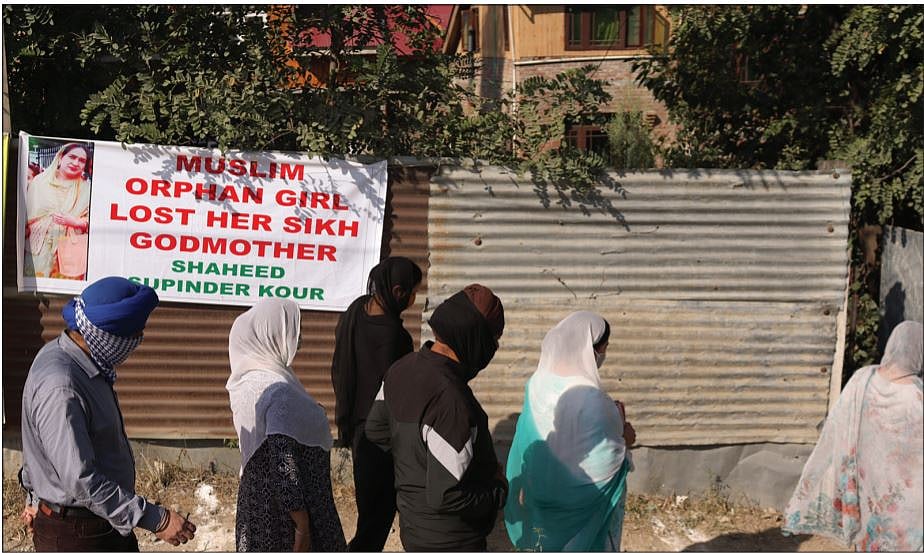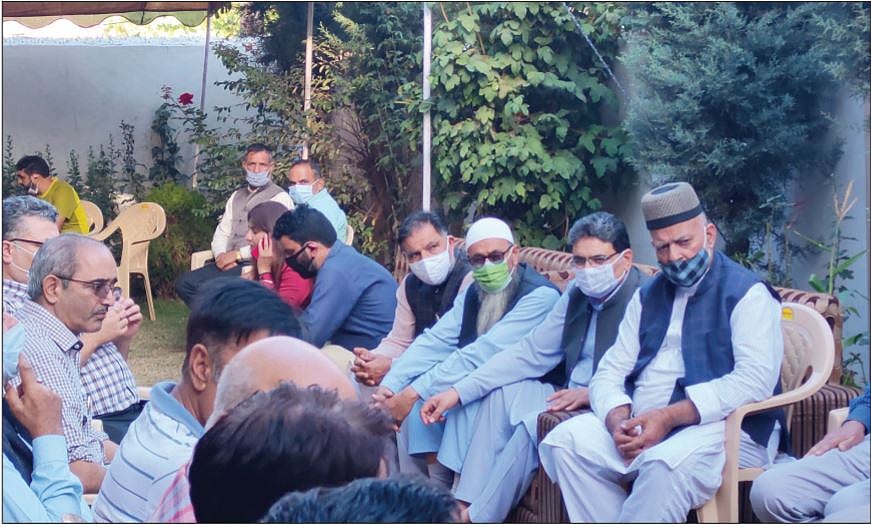BJP leaders not even taking our calls: valley of fear misses elected government
Inaccessible and indifferent officials and BJP leaders are part of the problem in Kashmir, say people in Srinagar, report Mudassir Kuloo and Gulzar Bhat

When we had an elected government in Jammu and Kashmir, they would at least listen to us but “BJP leaders are not even picking up our calls,” complains Sanjay Tickoo. The sentiment is almost universal with people cutting across communities complaining that officials are insensitive, inaccessible and indifferent while BJP leaders, the only ones who matter and are in a position to help, disappear at the first sign of trouble.
Two years after Home Minister Amit Shah and Prime Minister Narendra Modi promised an early election once normalcy was restored, the election is still as distant as it was in 2019 (See Page 6). While New Delhi has been claiming normalcy on the ground and points to tourist arrivals in Kashmir this summer, it has shown no inclination to restore statehood and hold an assembly election.
The discontent and the insecurity are discernible among all communities.
“Muslims are being killed by both sides,” says a sombre Mohammad Shafi who runs an eatery in Srinagar. Concurs a PG student Javed Shah. The spate of killings this year, 28 since January and 21 of them Muslims, has unsettled all communities in Kashmir, say both.


While members of the minority community have the option of leaving the Valley, Muslim families don’t, Shafi says. Killing of minorities in Kashmir, he says, invites more repression by the state and the security personnel on Muslims within the state and by people outside in other states.
Mohit Bhan, a PDP spokesperson, agrees. "There will be an increase in arrests, detentions, encounters, pat-downs, patrolling and civilian killings,” and they will be passed off as collateral damage, he adds.
Former chief minister Mehbooba Mufti also expects more repression to follow. “For the last two years, New Delhi has taken some harsh steps and harassed common people, silenced journalists and security agencies invaded people’s homes at the slightest pretext or provocation. After these killings, they will harass people more,” she said.
Both Bhan and Tickoo, president of Kashmir Pandit Sangharsh Samiti, acknowledge that calls by clerics during Friday prayers for peace and solidarity have helped calm frayed nerves of minorities feeling cornered. The calls, they felt, needed to be amplified and repeated to boost the confidence of Pandits and Sikhs alike. "We don't need police protection; we are safe among people",- says Tickoo. But appeals from mosques asking minority communities to stay back must continue, stress both.
Only seven non-migrant ‘families’ fled the Valley following the recent killings, claims Tickoo. Following the exodus of Pandits in the 1990s, 808 Pandit families had stayed back, he informs, and 800 of them are still here. “We did not leave Kashmir in the 1990s; then why would we leave now. We (Pandits) are being used as political pawns,” he adds.
When the then Prime Minister Manmohan Singh announced rehabilitation policies for the community in 2008, 3841 Pandit youth got jobs and moved back to the Valley. Out of them, 1400 to 1600 would have left for Jammu in the immediate aftermath of the killings but they will return, Tickoo adds hopefully.
“I want to ask BJP what has changed since August 5, 2019,” says Avtar Singh who has resigned from the BJP. All Parties Sikh Coordination Committee (APSCC) Chairman Jagmohan Singh Raina agrees. “Some people want to divide us and exploit the situation for their ulterior motives. The situation has turned from bad to the worse since August 5, 2019,” Raina said.“It is because of Muslims that we felt safe here. But two years have passed but nothing has changed. Nobody feels safe and Sikhs are not even given the minority status,” he points out.
Nothing has changed’ is the refrain one hears everywhere. Terror attacks have increased and official admit to 28 civilians killed since January this year, 21 of them Muslims. This month alone seven civilians have been killed, six of them in Srinagar. Out of the seven killed this month, three were Muslim and four were Hindus and Sikhs.
Nothing has changed since August, 2019, also says Ramesh Pal Singh, husband of Supinder Kaur, who was shot dead along with a colleague Deepak Chand at Govt. Boys Higher Secondary School in Srinagar’s Safa Kadal area on October 7. Stoical, he recalls that they had never received any threat. But after the killing, The Resistance Front (TRF) claimed responsibility and said the lady had been killed because she had hoisted the Indian flag in the school on August 15.
Supinder Kaur’s killing followed the killing of Dr Makhan Lal Bindroo, a prominent member of the community on October 5, which was preceded by the killing of a panipuri seller from Bihar Virender Paswan. Mohammad Shafi Lone, a taxi driver was then shot dead in Bandipora district.
Dr Sidharth Bindroo, son of late Dr Makhan Lal believes fears of demographic change in the Valley had triggered the killings. Militants clearly want non-Muslims to leave and ensure that outsiders do not settle here. “But Muslims constitute 90% of the population in the Valley. It will take 100 years of resettlement to reduce it,” he says.
Dr Bindroo however had spoken threats to his life. But he refused to leave or take precautions. A statement issued by TRF claimed that Dr Bindroo was killed because he organised "seminars and secret meetings involving Kashmiris, especially youth, in the name of health activities" and had affiliations with RSS.
The son dismisses his father’s links with RSS, which, he believes, does not exist in Kashmir.
What next? Nobody is quite sure. Indeed, few have any clue.
Follow us on: Facebook, Twitter, Google News, Instagram
Join our official telegram channel (@nationalherald) and stay updated with the latest headlines
